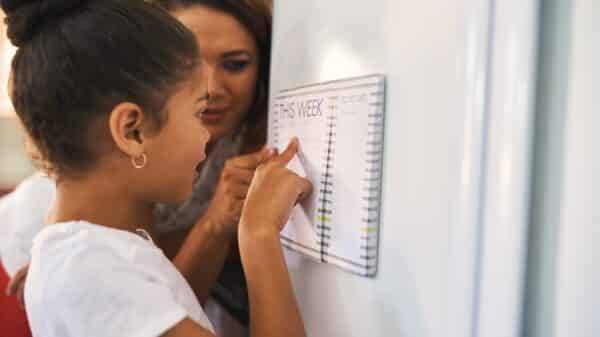Getting a degree is no easy feat, and for parents — who make up around 22% of undergraduates — the road to graduation can be particularly fraught with challenges. Imagine trying to juggle college classes, homework, and studying while also caring for a child. It’s a balancing act that requires not just determination but an incredible amount of resourcefulness. Securing and managing childcare during work hours is just one element they must contend with. The burden can sometimes feel overwhelming, but the drive for a better future can keep them going.
Unfortunately, recent proposals from the Trump administration could exacerbate these already significant challenges. A crucial lifeline for many student parents — the Child Care Access Means Parents in School (CCAMPIS) program — is at risk of being cut altogether.
CCAMPIS was established back in 1998 to support low-income parents in their pursuit of a higher education by providing much-needed campus-based childcare services. With an annual budget of approximately $75 million, it serves predominantly women and women of color, who often face systemic barriers in accessing education. In 2016-2017 alone, the program supported around 3,300 students. However, there were still around 4,000 children on a waiting list, illustrating just how high the demand is.
Under the Trump administration’s budget proposal, this essential program is being labeled as “unaffordable and duplicative.” The proposed solution? Shifting support to the Child Care Development Block Grant (CCDBG). While this program is available, it’s important to recognize that it’s administered at the state level. This means that each state can create its own eligibility requirements, often creating additional hurdles for those who would have qualified under CCAMPIS.
The implications of this potential cut reach far beyond just childcare. The proposed budget also includes significant cuts to higher education funding, including the elimination of federal Direct Subsidized student loans and substantial reductions to Pell Grants. Together, these changes could make it significantly harder for low-income families to pursue and afford a college education.
Education has long been viewed as a powerful tool for breaking the cycle of poverty. Research has shown that individuals who earn a degree tend to experience better job prospects and higher earning potential over their lifetimes. However, systemic inequities still exist, creating a gap between low-income graduates and their more affluent peers. But for those who do earn a degree, the opportunity for upward mobility is much greater than for those who don’t.
In these challenging times, it’s crucial to amplify the voices of student parents and advocate for programs like CCAMPIS that play a vital role in enabling them to achieve their educational goals. The struggles of balancing school, work, and parenting are all too real, and protecting resources that make their journey manageable is essential for fostering a more equitable educational landscape.
Navigating the complexities of higher education while parenting is no small task, but it’s a path that countless families are committed to pursuing. Together, we must work to ensure that these parents receive the support they need to succeed.
Image Source: Unsplash



































